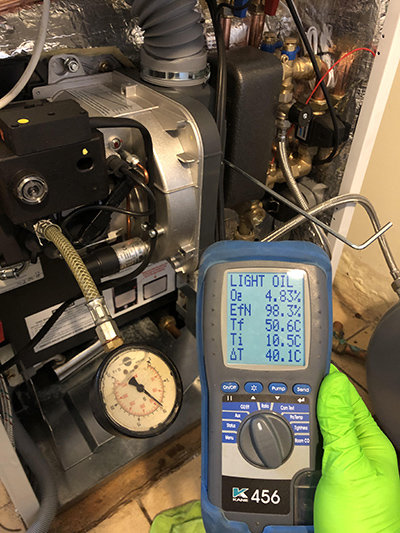OK, so you’ve decided to install a brand new boiler in your home! The only issue you may come across is when deciding on a precise heating system or fuel source, which is understandable given the range of options currently available.
The most popular choices include gas and oil, which clearly rely on different fuel sources and alternative components to function effectively.
In this article, we’ll compare these two boiler types in careful detail, so that you can determine which one is right for you!

Gas vs Oil Boilers
What are Gas Boilers?
Many homes in the UK that are connected to the national gas supply, use a gas boiler to supply heating and hot water. They are usually the first choice however with recent government initiatives to help reduce carbon footprint, many people are looking for an alternative, which is why an oil boiler is a great option!
What are Oil Boilers?
In houses without access to the national gas grid, oil-fired boilers are a common choice and they have become increasingly popular over the years.
They work in much the same way as gas boilers and usually have similar controls. The fuel source must be available at all times and as a result, an oil-fired boiler requires the installation of a fuel tank outside your home. An external fuel tank can be rented or purchased from local oil suppliers too.
So which one is better?
Let’s Start with Cost
If you’re anything like us, the most important selling point of any fuel source is its price. After all, energy prices have increased nationwide during the last few years, whilst this trend is expected to continue in the near term.
Gas remains the cheapest and most cost-effective fuel source for central heating in the UK, with the average household spending approximately £550 each year through this method.
Conversely, providing the same amount of usable heat with an oil boiler costs users an estimated £700 per annum, whilst electric storage heaters on the lower Economy 7 tariff will set home-owners back up to £900 each year.
In this respect, gas offers a most cost-effective fuel source than oil in the current market and is capable of delivering long-term savings to customers throughout the UK.
What about the Components Used?
In some respects, gas and oil heating work in similar ways, as they rely on a single boiler unit to supply hot water and space heating.
The components used as part of these heating systems are also similar, as you’ll need to install a boiler, electronic controls and radiators to ensure that it operates effectively.
The only slight difference is that installing an oil boiler will require you to invest in a separate storage tank, which will hold the fuel that’s delivered to your home on a regular basis.
You’ll therefore need to find additional space in your home for this tank, which may be challenging in smaller properties. You should also focus on installing the largest oil tank possible, as this will enable you to buy in bulk and make significant savings.
Considering Efficiency and Logistics
Efficiency is also a key consideration, and in this respect, there’s little between gas and oil when choosing your boiler type.
Oil is certainly considered to be a relatively efficient fuel and one that works particularly well with the latest boiler models. It certainly enables you to minimise energy waste, which in turn translates into lower carbon emissions.
You’ll also need to take your precise geographical location into consideration, particularly if own a remote property that’s not connected to the gas grid.
In this instance, installing an oil boiler can be a lifesaver as it prevents you from having to rely on expensive electricity to heat your home.
Choosing the Right Service Provider for you
Regardless of what boiler type and fuel source you settle on, you’ll need to settle on a reliable and accredited service provider to manage the installation process.
At Green & Reliable Heating, we’re both Gas Safe and Oil Safe Assured, meaning that we’re able to install both gas and oil boilers with a minimum of fuss. We also serve several regions in the Yorkshire area, including Harrogate, York and Wetherby.
If you’d like to know more about we can help you, give us a call on 08001182467 or 07717574470. Alternatively, drop us a line at alanmarcon@me.com or fill out our contact form here.


